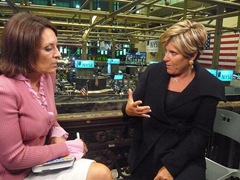Interest in municipal bonds is seasonal. Every year around this time Americans are reminded how much they pay in taxes and naturally turn their attention to finding ways to pay less. Munis, bonds issued by states, local governments,  assorted agencies, and blessed institutions of same, are a popular place to look. You generally do not owe federal income tax on the interest you get from them, and if the bond was issued inside your own state you generally do not owe state income taxes either.
assorted agencies, and blessed institutions of same, are a popular place to look. You generally do not owe federal income tax on the interest you get from them, and if the bond was issued inside your own state you generally do not owe state income taxes either.
This being the season, there has been a flurry of discussion about investing in munis. (See for example this in the Wall Street Journal.) Not to be left out, here is my primer on the subject.
The first thing to ask yourself before you consider munis is whether or not your income tax rate is high enough to bother. Yes, if you are paying any taxes at all, tax-free interest is better than taxed interest, everything else equal. But everything else is rarely equal in the investment world. Most muni investors are in the very highest tax brackets and they bid the prices up (and the yields down) such that munis make sense only for those paying those highest tax rates.
Read more »
I risk stating the obvious when I say that economic times are still tough. The recession, as the term is strictly defined, ended last summer. But that just means that the economy stopped contracting. The environment is still plenty challenging, even if it is a tiny bit less challenging than it was a few months ago.
 So it feels a little strange to be discussing the first birthday of the bull market. Most people are not comfortable even calling it a bull market, using paler terms such as rally or recovery. But in any other economic context it would be hailed as a great and wondrous upswing that we have all been lucky to live through.
So it feels a little strange to be discussing the first birthday of the bull market. Most people are not comfortable even calling it a bull market, using paler terms such as rally or recovery. But in any other economic context it would be hailed as a great and wondrous upswing that we have all been lucky to live through.
The S&P 500 closed at 682.55 on March 5, 2009. That turned out to be its low for 2009, and indeed for the decade. It was a level last seen in September 1996. In other words, with dividends ignored, the market had on average returned nothing for thirteen years.
Read more »
Saturday’s Wall Street Journal carried a column by Jason Zweig, Brokers Win, Investors Lose Key Reform which lamented the loss of a provision in a bill now "oozing" through the Senate that would have made stockbrokers, insurance agents, and certain other financial salesmen into fiduciaries.
 On the remote chance that the term fiduciary does not ring any bells, let me explain. Investment advisors and managers, including, for example, mutual fund companies, are fiduciaries. They are required to put their clients’ interests first, which basically means watching over client money as they would their own. Of course, there are limits to this, nobody would expect a mutual fund company to lower fees out of fiduciary responsibility, but by and large this works and consumers get what they expect from the relationship.
On the remote chance that the term fiduciary does not ring any bells, let me explain. Investment advisors and managers, including, for example, mutual fund companies, are fiduciaries. They are required to put their clients’ interests first, which basically means watching over client money as they would their own. Of course, there are limits to this, nobody would expect a mutual fund company to lower fees out of fiduciary responsibility, but by and large this works and consumers get what they expect from the relationship.
At the opposite end of the trust spectrum are ordinary salesmen and the ordinary profit-maximizing companies for which they work. Of course, the great majority of people and firms we do business with fall into this category. We know this and think nothing of it. When the waiter suggests dessert, nobody indignantly objects he is not putting the interests of the diners ahead of that of his employer. Ditto for the salesgirl at the mall who says you look great in those pants. Again, this system works and consumers get what they expect.
Read more »
 March is just around the corner, which means we are entering the heart of tax season. Time to gather those 1099s, fire up the old TurboTax, and wonder how we can possibly pay Uncle Sam less money next time.
March is just around the corner, which means we are entering the heart of tax season. Time to gather those 1099s, fire up the old TurboTax, and wonder how we can possibly pay Uncle Sam less money next time.
So ’tis the season to think about, and write about, schemes and tricks to minimize your tax bill. For example, the AP ran an item the other day discussing the rather unlikely maneuver of teenagers opening Roth IRAs.
It’s an idea with some intuitive appeal. As readers of this blog know, Roths are attractive if you believe that the tax rate paid today is likely to be lower than what will be paid when the money is withdrawn from the IRA. A teenager with a tiny income, and thus a low marginal tax rate, certainly qualifies.
And there is the tremendous emotional appeal of "the magic of compounding" that miracle of mathematics that will drastically increase the IRA balance during the very long journey to retirement. Even with only 5% annual return, after 50 years $1 would grow to $11.46. Imagine how grateful your child will be when they retire and realize the foresight you had in making them save way back in 2010.
Read more »
Yesterday former Merrill broker and municipal bond investor Suze Orman, CFP, sent out word to her legions of followers that they should "be extra careful in how you invest at this point in time." The Oracle of Berkeley continued:
A pullback from here shouldn’t be surprising given the fast and steep rise. Meanwhile there’s the evolving concern that Greece’s debt problems could spread to other countries given the inter-connectedness of all our economies. Add it all up and there’s more to worry about than cheer.
 I am writing down the date she wrote this "2-8-10" and that day’s S&P close "1056.74" on a post-it I am placing on the wall here at BMA World Headquarters. I would encourage my legion of followers to do the same, so that together we can bask in the wisdom and foresight of the Great Suze.
I am writing down the date she wrote this "2-8-10" and that day’s S&P close "1056.74" on a post-it I am placing on the wall here at BMA World Headquarters. I would encourage my legion of followers to do the same, so that together we can bask in the wisdom and foresight of the Great Suze.
Orman goes so far as to recommend that investors act on her vision through dollar cost averaging. That’s more than a little asinine, but before discussing it, let me dwell a bit on her reasons for worry. It’s not every day that Suze shares her market timing insights. (In fact, I think this may be the first time ever.)
Read more »
 assorted agencies, and blessed institutions of same, are a popular place to look. You generally do not owe federal income tax on the interest you get from them, and if the bond was issued inside your own state you generally do not owe state income taxes either.
assorted agencies, and blessed institutions of same, are a popular place to look. You generally do not owe federal income tax on the interest you get from them, and if the bond was issued inside your own state you generally do not owe state income taxes either.


